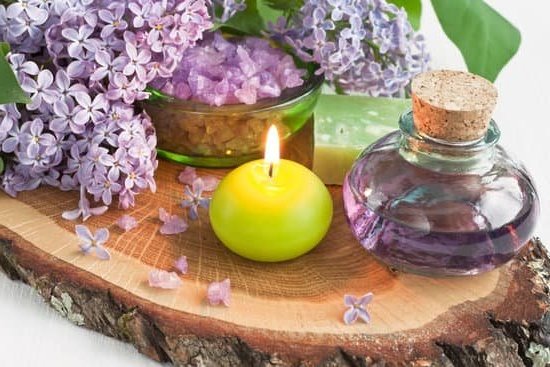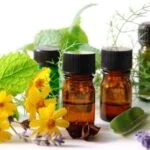Aromatherapy, the practice of using plant extracts and essential oils for therapeutic purposes, has gained immense popularity in recent years. As the demand for natural remedies and holistic wellness continues to grow, the aromatherapy industry is booming with a plethora of products and brands catering to this market. When it comes to standing out in this competitive landscape, the choice of brand name plays a crucial role in attracting customers and creating brand recognition.
In the world of aromatherapy, brand names are not just labels but powerful tools that communicate the essence of a product or company. A well-crafted brand name can evoke emotions, convey quality, and establish credibility in the minds of consumers. Whether you are launching a new line of essential oils or opening a spa specializing in aromatherapy treatments, choosing the right brand name is essential for creating a strong brand identity and connecting with your target audience.
The success of an aromatherapy brand often hinges on its name – one that resonates with customers, differentiates from competitors, and speaks to the benefits of aromatherapy. To make a lasting impression in this industry saturated with options, it is important to understand the characteristics that make a great aromatherapy brand name. From evoking sensory experiences to conveying authenticity and expertise, a carefully chosen brand name can set your products apart and contribute significantly to your market positioning.
The Importance of Brand Names in the Aromatherapy Industry
Aromatherapy has become increasingly popular in recent years as people seek natural and holistic ways to improve their well-being. With the rise in demand for aromatherapy products, the importance of brand names in the industry cannot be overlooked. A strong and memorable brand name can set a company apart from competitors, attract customers, and build trust and loyalty with consumers.
When it comes to aromatherapy brand names, it is crucial to consider the impact that a name can have on a customer’s perception of a product. The right name can evoke feelings of relaxation, freshness, or rejuvenation – all key aspects of aromatherapy. Additionally, a well-chosen brand name can convey the values and mission of a company, helping to establish a connection with potential buyers.
In the crowded market of aromatherapy products, standing out with a unique and engaging brand name is essential for success. Some successful aromatherapy brand names have capitalized on elements such as nature-inspired imagery, sensory experiences, or cultural references to create an immediate connection with consumers. By choosing a name that resonates with your target audience and reflects the essence of your products, you can establish a strong identity in the competitive aromatherapy industry.
| Key Factors | Description |
|---|---|
| Nature-Inspired Imagery | Aromatic Earth |
| Sensory Experiences | Essence Bliss |
| Cultural References | Harmony Roots |
Characteristics of a Great Aromatherapy Brand Name
The success of an aromatherapy brand often hinges on the choice of a strong and effective brand name. A great aromatherapy brand name should be memorable, reflective of the products or services offered, and distinct from competitors in the industry. It serves as a key element in establishing brand identity and connecting with consumers on a deeper level. In the competitive world of aromatherapy, a well-crafted brand name can set a company apart and draw in potential customers.
When crafting a great aromatherapy brand name, it is essential to consider factors such as relevance, memorability, and uniqueness. The name should be relevant to the products being offered, creating a clear association with aromatherapy products that resonate with consumers. For example, popular aromatherapy brand names like “Aura Candles” or “Essential Bliss” effectively convey the essence of their products through their names.
Moreover, a memorable aromatherapy brand name has the power to stick in the minds of consumers long after they encounter it. Names that are easy to pronounce and spell tend to be more memorable and are more likely to be shared by satisfied customers through word-of-mouth recommendations. Additionally, uniqueness is key in standing out among competitors – a distinct brand name helps create a lasting impression and fosters brand loyalty among consumers seeking innovative and high-quality aromatherapy products.
In the saturated market of aromatherapy products, branding plays a crucial role in attracting customers and building trust. A well-thought-out aromatherapy brand name can communicate the values, mission, and quality standards of a company without saying much at all. By focusing on relevance, memorability, and uniqueness when choosing a brand name for an aromatherapy business, companies can establish themselves as leaders in the industry and create lasting connections with their target audience.
| Characteristics | Description |
|---|---|
| Relevance | The name should be associated with the products or services offered. |
| Memorability | Easy to remember and leaves a lasting impression on customers. |
| Uniqueness | Sets the brand apart from competitors and fosters loyalty among consumers. |
Top 10 Successful Aromatherapy Brand Names Examples
When it comes to the world of aromatherapy, brand names play a crucial role in setting apart one product from another. A strong and memorable brand name can make a significant impact on potential customers, creating a sense of trust and credibility in the products being offered. In the competitive aromatherapy industry, having a standout brand name can be a game-changer for any business.
Aura Cacia
One example of a successful aromatherapy brand name is Aura Cacia. Known for its high-quality essential oils and aromatherapy products, Aura Cacia has built a strong reputation in the industry over the years. The name itself evokes a sense of calm and serenity, perfectly aligning with the brand’s mission to promote overall well-being through aromatherapy.
NOW Foods
NOW Foods is another well-known player in the aromatherapy market with a simple yet effective brand name. The name “NOW” conveys a sense of immediacy and accessibility, making it appealing to consumers looking for instant solutions to their wellness needs. This straightforward approach to branding has helped NOW Foods become a trusted name in the industry.
Young Living
Young Living is a prominent aromatherapy brand known for its pure essential oils and wellness products. The brand name “Young Living” suggests vibrancy, youthfulness, and vitality – qualities that resonate with consumers seeking natural healthcare alternatives. With its strong focus on quality and authenticity, Young Living has established itself as a leader in the aromatherapy market.
These are just a few examples of successful aromatherapy brand names that have made an impact in the industry. By studying these brands and understanding what makes their names effective, aspiring entrepreneurs can learn valuable insights on how to create their own unique and memorable brand names for their aromatherapy businesses.
How to Create a Unique and Memorable Aromatherapy Brand Name
Creating a unique and memorable brand name for your aromatherapy products is crucial in standing out in a competitive market. Your brand name is the first impression you give to potential customers, so it’s essential to make it captivating and reflective of your values and offerings. Here are some key strategies to help you craft a distinctive aromatherapy brand name that resonates with your target audience.
Reflect Your Brand Identity
When brainstorming potential names for your aromatherapy brand, consider what sets your products apart from others in the market. Think about the values, mission, and aesthetic of your brand. Your name should align with these elements and convey the essence of what makes your products unique. For example, if your brand focuses on natural and organic ingredients, incorporating words like “nature,” “pure,” or “botanical” into your name can communicate this identity effectively.
Keep It Simple and Easy to Remember
A good brand name should be easy to pronounce, spell, and remember. Complex or overly elaborate names may confuse customers or make it difficult for them to recall your brand when they’re looking for aromatherapy products. Opt for short, catchy names that are straightforward and resonate with your target audience.
Avoid using fancy spellings or obscure words that might be challenging for people to understand or remember. Aim for simplicity and clarity to ensure that your brand name sticks in customers’ minds.
Conduct Research and Check Availability
Before finalizing your aromatherapy brand name, conduct thorough research to ensure that it is not already in use by another company in the same industry. Checking trademarks databases and domain registries can help you avoid legal issues down the line. Additionally, consider how the name will translate across different platforms, such as social media handles, website domains, and packaging materials.
Consistency across all channels will help strengthen your brand’s recognition and make it easier for customers to find you online. By following these guidelines, you can create a memorable aroma therapy bran names that resonates with customers and sets you apart from competitors in the market.
Tips for Trademarking Your Aromatherapy Brand Name
When you have come up with the perfect name for your aromatherapy brand, it is crucial to make sure it is legally protected through trademarking. By trademarking your brand name, you can prevent others from using the same or similar names in the market, which helps establish and protect your brand identity.
Here are some essential tips to consider when trademarking your aromatherapy brand name:
- Conduct a thorough search: Before applying for a trademark, it is important to conduct a comprehensive search to ensure that the name you have chosen is not already in use by another company. This can help you avoid potential legal issues in the future.
- Seek professional help: Trademark law can be complex, so it is highly recommended to seek the assistance of a trademark attorney or professional service specialized in intellectual property rights. They can guide you through the process and ensure all necessary documents are properly filed.
- File for trademark registration: Once you have conducted a search and received guidance from a professional, proceed with filing for trademark registration with the relevant government authority. This will provide you with legal protection for your brand name within your specific industry.
By following these tips, you can secure the legal protection needed to safeguard your aromatherapy brand name and prevent any potential conflicts or infringement issues. Remember that protecting your brand identity is essential for building trust with consumers and establishing a strong presence in the competitive aromatherapy market.
Common Mistakes to Avoid When Naming Your Aromatherapy Brand
When it comes to naming your aromatherapy brand, there are certain common mistakes that should be avoided to ensure that your brand stands out in the competitive market. The name of your brand plays a crucial role in attracting customers and establishing a strong brand identity. Here are some common mistakes to avoid when naming your aromatherapy brand:
- Choosing a generic name: Avoid selecting a generic name that does not reflect the unique selling proposition of your products. A generic name can make it difficult for customers to remember or differentiate your brand from competitors.
- Using complex or hard-to-spell words: Opt for simple and easy-to-spell words that are memorable and resonate with your target audience. Complicated names may lead to confusion and make it challenging for customers to find your brand online.
- Ignoring cultural sensitivities: Be mindful of different cultures and languages when selecting a name for your aromatherapy brand. What may sound appealing in one language could have negative connotations in another, potentially alienating potential customers.
Additionally, it is important to conduct thorough research to ensure that the chosen name is not already trademarked by another company. This can help prevent legal issues down the line and protect the reputation of your aromatherapy brand. By avoiding these common mistakes and taking the time to carefully select a captivating and relevant name, you can set your aromatherapy brand up for success in the competitive market.
- Avoiding vague or misleading names
- Neglecting customer feedback
- Failing to consider future expansion
The Future of Aromatherapy Brand Names
As the aromatherapy industry continues to grow and evolve, the importance of brand names becomes even more crucial in distinguishing oneself in a crowded market. In the future, trends suggest that consumers will be increasingly drawn to unique and memorable aromatherapy brand names that evoke a sense of luxury, wellness, and authenticity. Successful aromatherapy brands will need to stay ahead of the curve by tapping into these evolving consumer preferences.
In order to create a successful brand name in the competitive aromatherapy market, companies will need to focus on creating names that not only resonate with their target audience but also convey a sense of trust and credibility. Embracing sustainability and natural ingredients in product offerings can further enhance the appeal of aromatherapy brand names in the eyes of environmentally conscious consumers.
Brands that can effectively communicate their unique value proposition through their name will have a competitive edge in capturing market share.
Looking ahead, it is clear that trademarking your aromatherapy brand name will be essential to protecting your intellectual property and standing out from competitors. As more players enter the aromatherapy market, ensuring that your brand name is legally protected will become increasingly important.
By staying informed about trademark regulations and seeking legal advice when needed, aromatherapy brands can safeguard their brand identity for future growth and expansion. In conclusion, as we move forward into an era where well-being and self-care are paramount, the right aromatherapy brand name has the power to not only attract customers but also leave a lasting impression in an ever-changing marketplace.
Frequently Asked Questions
What Is the Most Popular Aromatherapy?
The most popular aromatherapy scent is lavender. Lavender is well-known for its calming and relaxing effects, making it a favorite choice for stress relief and promoting better sleep. Its soothing aroma is loved by many for its ability to promote relaxation.
What Are the Top 20 Essential Oils?
Some of the top essential oils include lavender, tea tree, peppermint, eucalyptus, lemon, chamomile, frankincense, rosemary, bergamot, ylang-ylang, cedarwood, geranium, patchouli, sandalwood, jasmine, rose, clary sage, thyme, juniper berry, and grapefruit. Each of these essential oils has unique benefits and uses.
What Is a Good Name for Essential Oils?
A good name for essential oils should capture the essence of the oil while also being easy to remember and pronounce. Names like “Pure Bliss Essentials,” “Nature’s Harmony Oils,” or “Serenity Aromatics” convey a sense of natural beauty and tranquility that align with the purpose of essential oils in promoting wellness.
Ultimately, a name that resonates with customers and reflects the quality of the product is key in branding essential oils effectively.

Are you looking for a natural way to improve your health and wellbeing?
If so, aromatherapy may be the answer for you.





